Chocolate, embodying the bittersweet narrative of environmental and social impact, offers more than just indulgence. In recognizing the importance of ethical sourcing and sustainability, AI has curated 2024’s top 9 chocolate brands. These selections are not just confectionary delights but pioneers in regenerative farming and fair trade. Their commitment transforms the chocolate industry into a force for positive change, reflecting the delicate balance of bitter and sweet in their approach to global responsibility.
The Problems in the Chocolate Industry
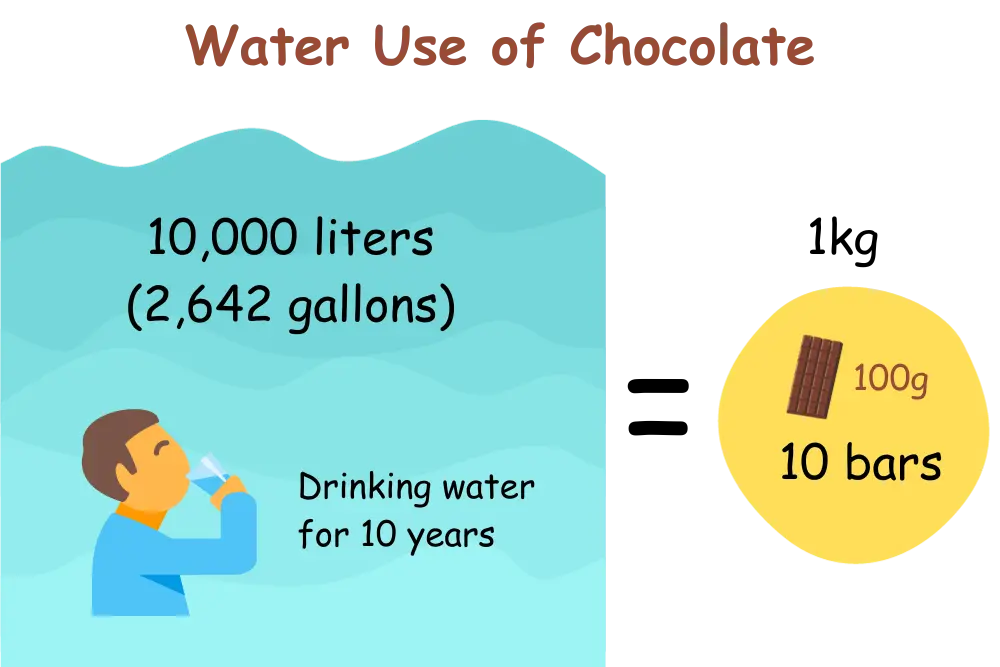
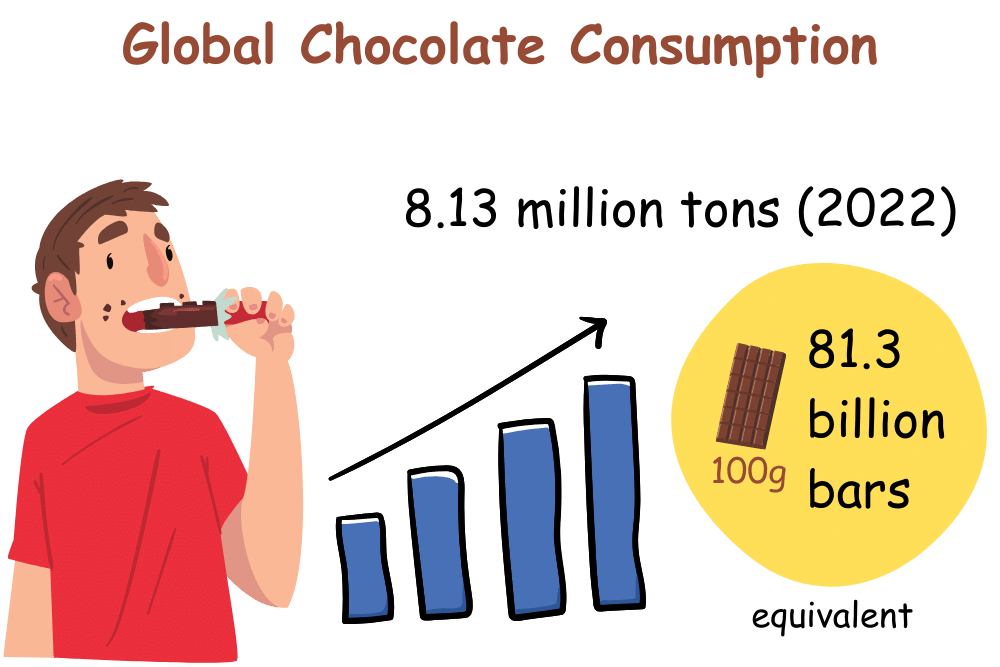
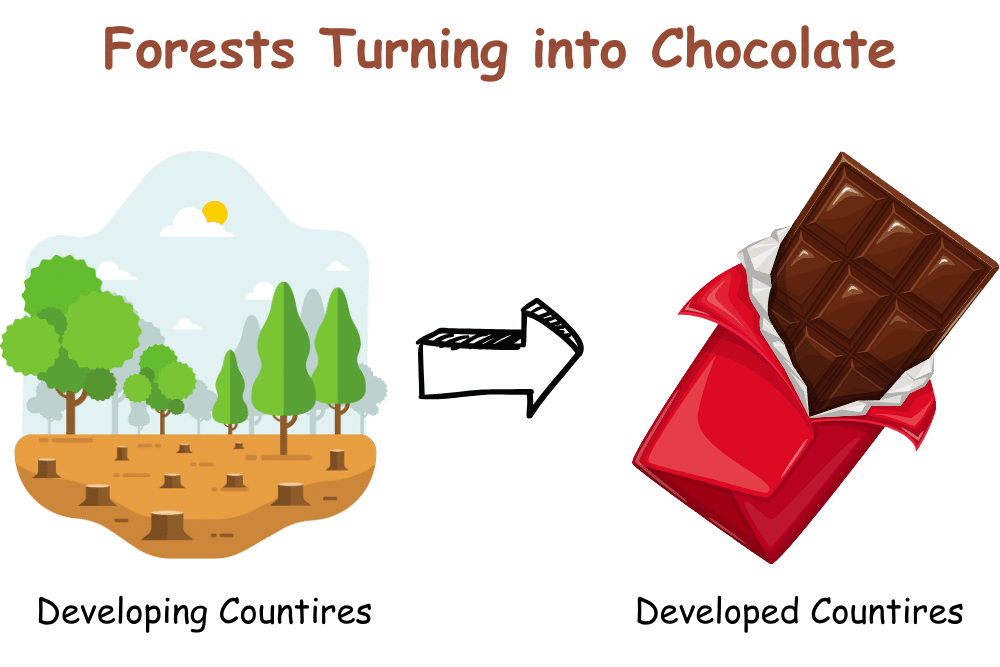
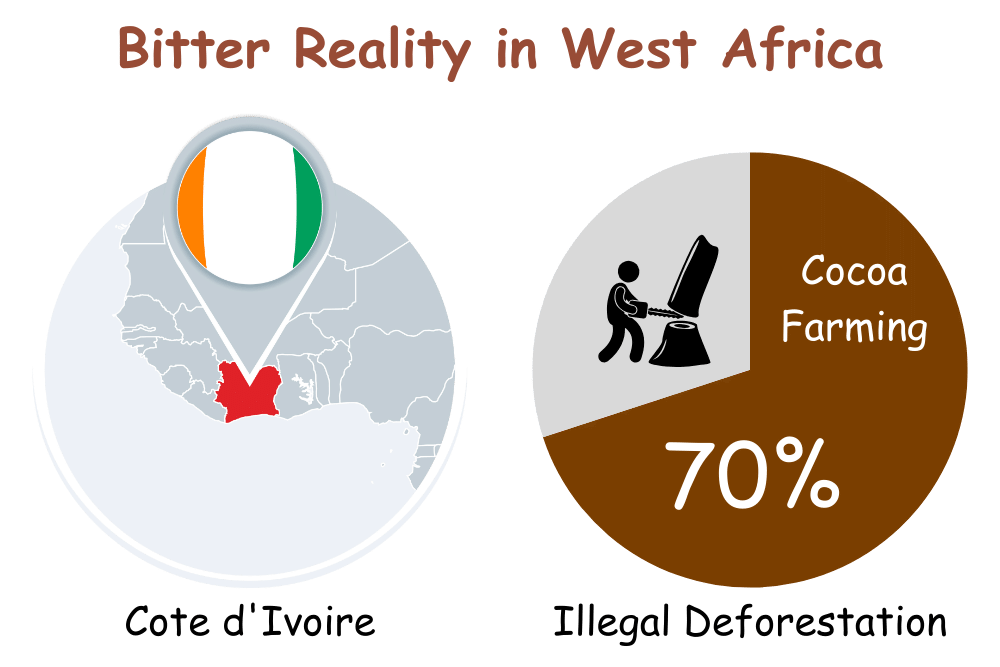
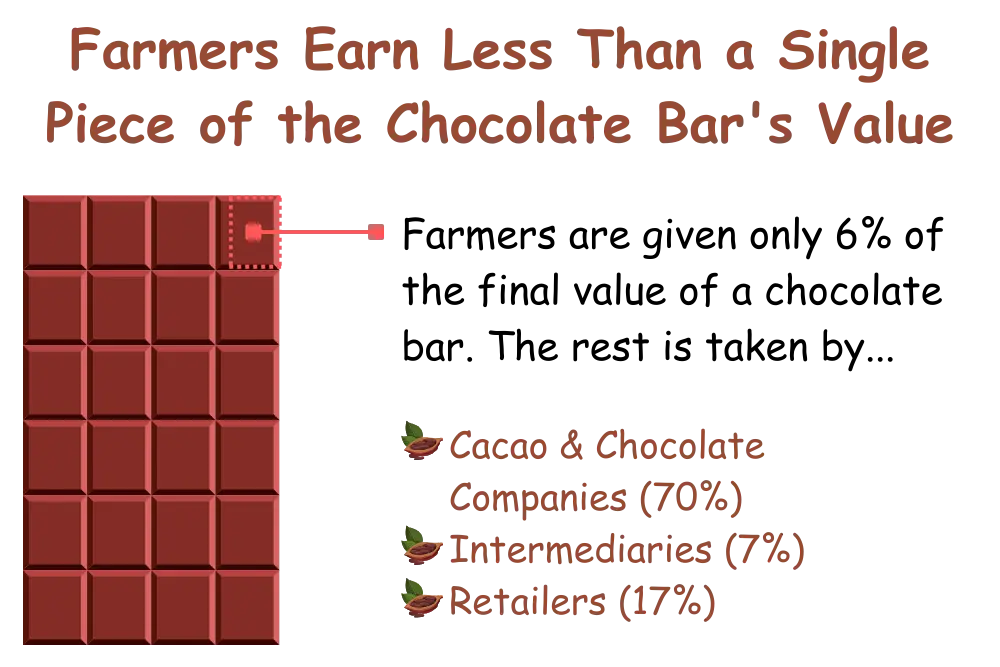
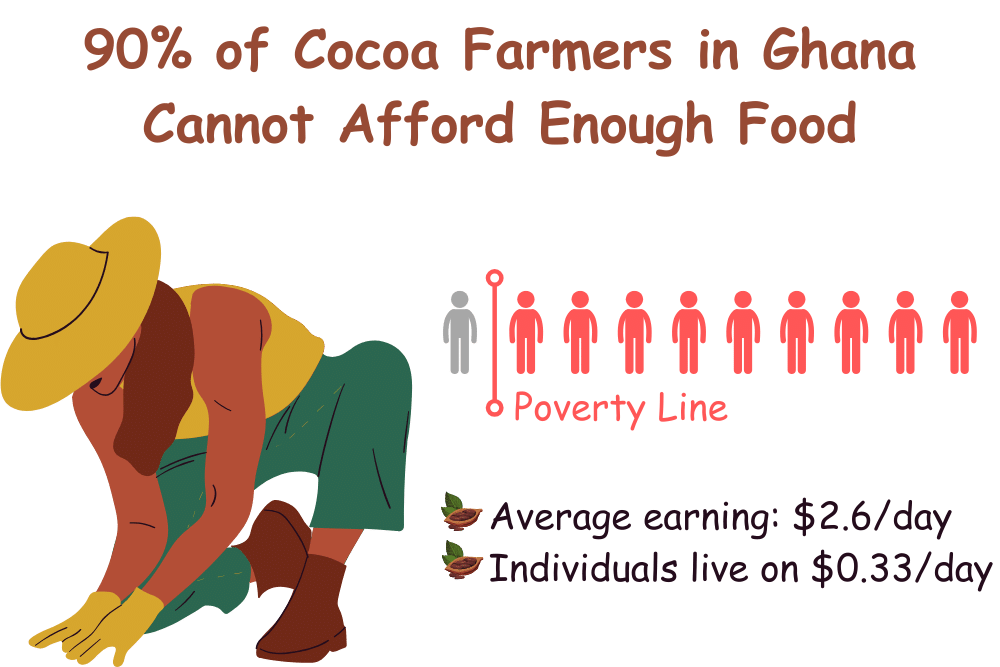
What Consumers Can Do
Be aware that agroforestry and shade-grown methods enhance cocoa yield, soil fertility, and pest control. Crop diversity increases resilience, optimizes nutrient use, and reduces soil erosion.

Choosing chocolate brands with certifications like Fair Trade, Rainforest Alliance, or UTZ ensures environmentally friendly and socially responsible cocoa production, reducing deforestation and supporting sustainable farming.
 AI
AII choose brands based on the essential sustainability certifications and standards, specifically for the chocolate industry.
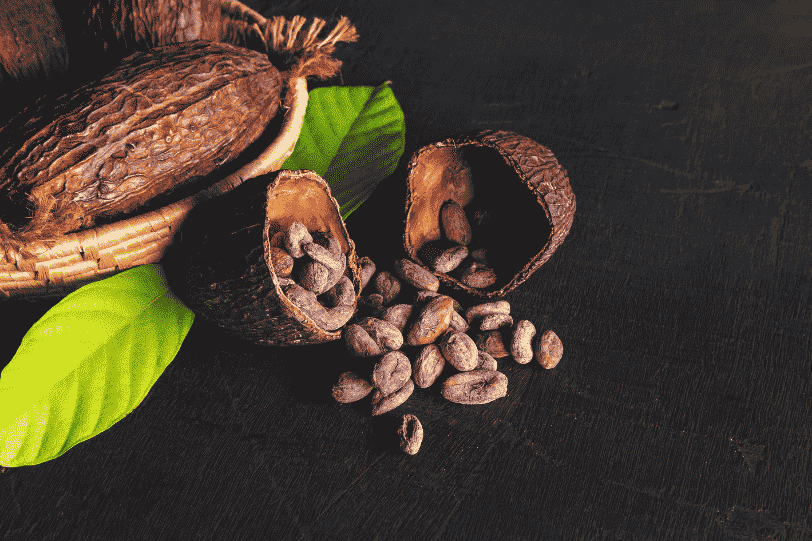

Alter Eco
Alter Eco is a food company that centers around chocolate. The brand is committed to creating food that restores rather than depletes, from soil to shelf. They believe in combating climate change and inequality, which they view as the two greatest challenges of our lifetime.
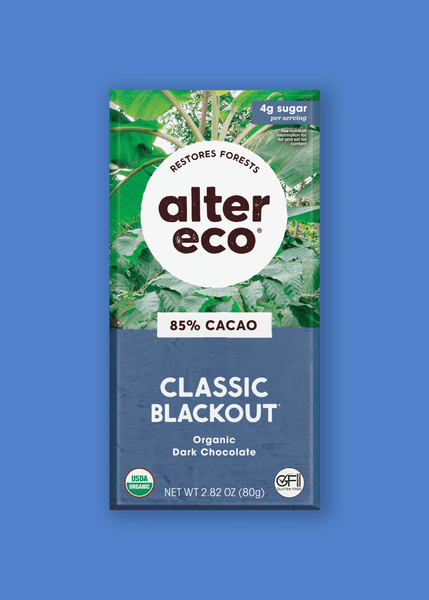

A seriously dark bar for those who are serious about chocolate. The malty intensity of Ecuadorian cacao meets its match in the robust fruitiness of its Dominican cousin. Swiss chocolatiers meticulously roast and conch our fine ingredients to balance darkness and depth with a round, smooth, creamy finish. At 85% cacao, this intense concoction will satisfy your chocolate craving.
Price Range: $4.49 per bar
Key Sustainable Features:
- Practices a full-circle approach to sustainability throughout its operations and supply chain
- Sources using Fair Trade principles
- Produces only organic and non-GMO foods
- Works towards creating minimal waste by aiming for 100% compostable packaging
- In-sets carbon emissions through large-scale reforestation/conservation programs in the cooperatives that produce its crops
- Helps mitigate climate change through regenerative agriculture
- Established the Alter Eco Foundation to work directly with cacao farmers to help them transition their crops to regenerative agriculture
- Introduced new packaging for its entire line of organic and Fair Trade chocolate bars that showcases the company’s commitment to regenerative agriculture
Theo Chocolate
Theo Chocolate, established in 2006, is an American chocolate maker based in Seattle, Washington. It is the first organic fair trade-certified cocoa producer in the United States. The brand is deeply committed to positive impact and transparency, with a mission to create a more beautiful, compassionate, and enduring world by responsibly making delicious and inspiring products.


Price Range: $4.49 – $53.88
Key Sustainable Features:
- Committed to equitable and transparent practices across the entire supply chain
- All ingredients are carefully screened and third-party verified to meet standards for social and environmental sustainability
- Certified as organic and fair trade
- Since 2005, Theo has purchased over 11,820 metric tons of cocoa and paid over $2.3 million into fair trade cocoa development funds
- Farmers are trained with an emphasis on agroforestry, shade-grown cocoa, and crop diversity
- Theo is committed to creating high-quality chocolate, ensuring everyone who touches the business thrives
- Theo’s work with farmers supports their ability to utilize sustainable growing practices that benefit both our fragile environmental ecosystem and all of the people inhabiting our planet
Original Beans
Original Beans is a Dutch company that has been a pioneer in the craft chocolate movement in Europe since 2008. The brand is committed to regenerative business practices and sources the world’s rarest and fairest cacao beans. Original Beans aims to create a food culture that regenerates our world.


Price Range: generally range from €5.53 to €30
Key Sustainable Features:
- Practices 100% regenerative business
- Sources rare and fair cacao beans
- Ranked as the world’s No.1 most sustainable chocolate brand in 2023
- Developed the world’s first craft cacao standard in 2020
- Committed to preserving beans and their forest environments
- Won all major taste awards and is a favorite of top chefs
- Grows a regenerative business
- Founder Philipp Kauffmann left his job at the United Nations to start Original Beans
- Commissioned the chocolate industry’s first carbon balance in 2015
- Designed the world’s first Chocolate Foodprint in 2017
- Launched the world’s first one4one tree program in 2010
Raaka Chocolate
Raaka Chocolate, based in Brooklyn, New York, is a unique chocolate maker that crafts delicious chocolate from unroasted cacao beans. The brand is committed to transparency in sourcing and aims to showcase the wilder side of cacao. Raaka Chocolate believes in building healthy and valuable relationships with the global community, our planet, and each other.


Price Range: $6 – $8
Key Sustainable Features:
- Practices Transparent Trade, a sourcing model that details how they purchase cacao, who they buy it from, and what they paid for it
- Purchases cacao directly from cooperatives and grower organizations that focus on quality, sustainability, field support, market access, and premium prices for farmers
- Always purchases cacao at stable, premium prices that are higher than commodity market and Fair Trade prices
- Publishes the price they pay for cacao on the inside of every Raaka wrapper
- Uses traceable, high-quality, single-origin, transparently sourced cacao
- All of their chocolate is certified organic, certified non-GMO, kosher, and free of gluten and soy
Endangered Species Chocolate
Endangered Species Chocolate is a U.S.-based company that crafts premium chocolate while supporting species, habitat, and humanity. The brand is committed to making a true impact for wildlife and habitats around the globe, with 10% of its annual net profits donated to organizations that support its mission.


Price Range: $2.99 – $39.99
Key Sustainable Features:
- Committed to crafting delicious premium chocolate while supporting species, habitat, and humanity
- Donates 10% of its annual net profits to conservation efforts
- Sources fully traceable cocoa from West Africa
- Supports fair trade practices, ensuring workers harvesting the beans are paid fairly
- Cocoa is grown without the use of synthetic fertilizers and pesticides
- Uses shade-grown cocoa, creating habitat for birds and contributing to a more diverse ecosystem for wildlife
- Has contributed more than $1 million in Fairtrade Premium to cocoa cooperatives in Côte d’Ivoire since 2015
- Fairtrade Premiums from their sales benefit and empower their suppliers as well as their communities
Tony’s Chocolonely
Tony’s Chocolonely is a Dutch confectionery company that was established in 2005. It’s committed to making chocolate 100% slave-free, not just its own chocolate, but all chocolate worldwide. The brand is an impact company that believes businesses should be socially minded by default.


Price Range: £3 – £30
Key Sustainable Features:
- Uses only traceable cocoa beans
- Always pays a higher price for cocoa
- Invests in strong farmers and nurtures long-term relationships
- Committed to quality and productivity
- All the UN’s 17 Sustainable Development Goals (SDGs) are integrated into their work
- Has picked 6 SDGs that are core to their mission to make chocolate 100% slavery-free
- Helps farmers out of the poverty trap by looking at all the dimensions of poverty from health and education to income
- Supports a living income through their 5 Sourcing Principles
- Pays a higher price for cocoa, but it has to happen together with others, such as improving quality and productivity, if they’re going to break the cycle
- Ending hunger is tightly tied to earning a living income
Equal Exchange
Equal Exchange is a pioneer in promoting fair trade and fostering long-term partnerships that are economically just and environmentally sound. Established in 1986, it aims to connect consumers and producers through information, education, and the exchange of products in the marketplace.


Price Range: generally range from $5 to $50
Key Sustainable Features:
- Adopts a model of authentic fair trade, supporting economic justice, environmental sustainability, and community development
- Works directly with small farmer co-ops, fostering relationships that span over 30 years
- Committed to sourcing from small-farmer or artisan co-operatives
- Pays higher than conventional market prices, either through above-market premiums and/or price floors
- Adheres to the policies of the International Labor Organization, especially those concerning child and forced labor and the right to collective bargaining
- Prohibits the use of the more dangerous pesticides and herbicides
- Strives for sustainable packaging, aiming to reduce the environmental impact of its products
- As a worker co-op, each worker-owner gets one vote, has access to shared financial information, and invests an equal share in the business
UnReal Chocolate
UnReal Chocolate is a U.S.-based brand that offers healthier alternatives to traditional chocolate snacks. The brand uses up to 51% less sugar than leading brands and all ingredients are organic, sustainable, and non-GMO. UnReal Chocolate aims to make everyone enjoy their favorite chocolate snacks without all the sugar.


Price Range: $18.99 – $39.99
Key Sustainable Features:
- Uses up to 51% less sugar than the leading brand
- All ingredients are organic, sustainable, and non-GMO
- Does not use sugar alcohols, stevia, or IMOs
- Uses deliciously rich fair trade chocolate
- Makes products with simple, organic, non-GMO project-verified ingredients
- Ensures that all ingredients are certified non-GMO, certified vegan, and certified gluten-free
Divine Chocolate
Divine Chocolate is a global, farmer-owned chocolate company that uses the power of chocolate to delight and engage. Established in the early 1990s, it was created to help farmers in Ghana sell their own cocoa. The brand is committed to achieving best practices in terms of social, economic, and environmental sustainability.


Price Range: $57.99 – $140.99
Key Sustainable Features:
- Operates as a 100% Fairtrade-certified company
- Utilizes a unique farmer-owned model
- Certified as a B Corp in 2016, demonstrating its commitment to social and environmental performance
- Works with cocoa farmer organizations in São Tomé and Sierra Leone
- Invests in innovative farmer-led programs that empower women, provide training in sustainable agriculture, improve labor standards, and introduce Forest-Friendly farming
- All products are made with 100% pure cocoa butter, only natural flavors and ingredients, and no palm oil, no soy, and no GMOs
- All products are vegetarian, and vegan-suitable options are available
Explore Sustainability Certifications and Standards for the Chocolate Industry
- Fair Trade Certification: Ensures fair prices and better conditions for farmers and workers, promoting sustainable farming practices and environmental protection.
- Rainforest Alliance Certification: Focuses on biodiversity conservation and sustainable livelihoods, aiming to improve farm management and environmental impact.
- UTZ Certification: Merged with Rainforest Alliance, it emphasizes sustainable farming and better opportunities for farmers, workers, and their families.
- Organic Certification: Validates that products meet consistent, specific standards for organic production, handling, processing, and labeling.
- Forest Stewardship Council (FSC) Certification: Certifies that materials used for packaging come from responsibly managed forests that provide environmental, social, and economic benefits.
- ISO 34101: Sustainable and Traceable Cocoa: A series of international standards focusing on professionalizing smallholder cocoa farming, ensuring sustainable and traceable cocoa bean production with environmental, social, and economic criteria.





